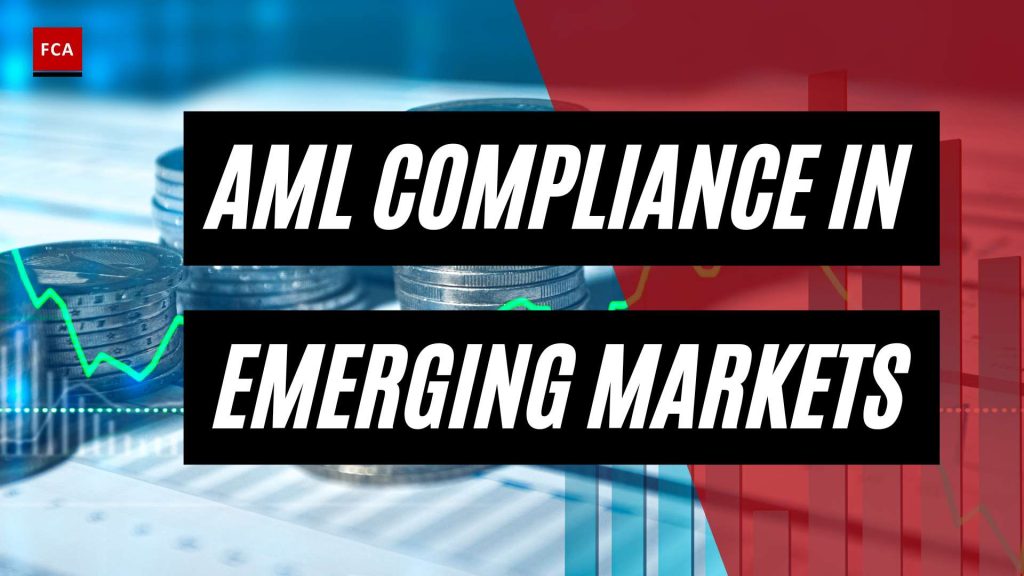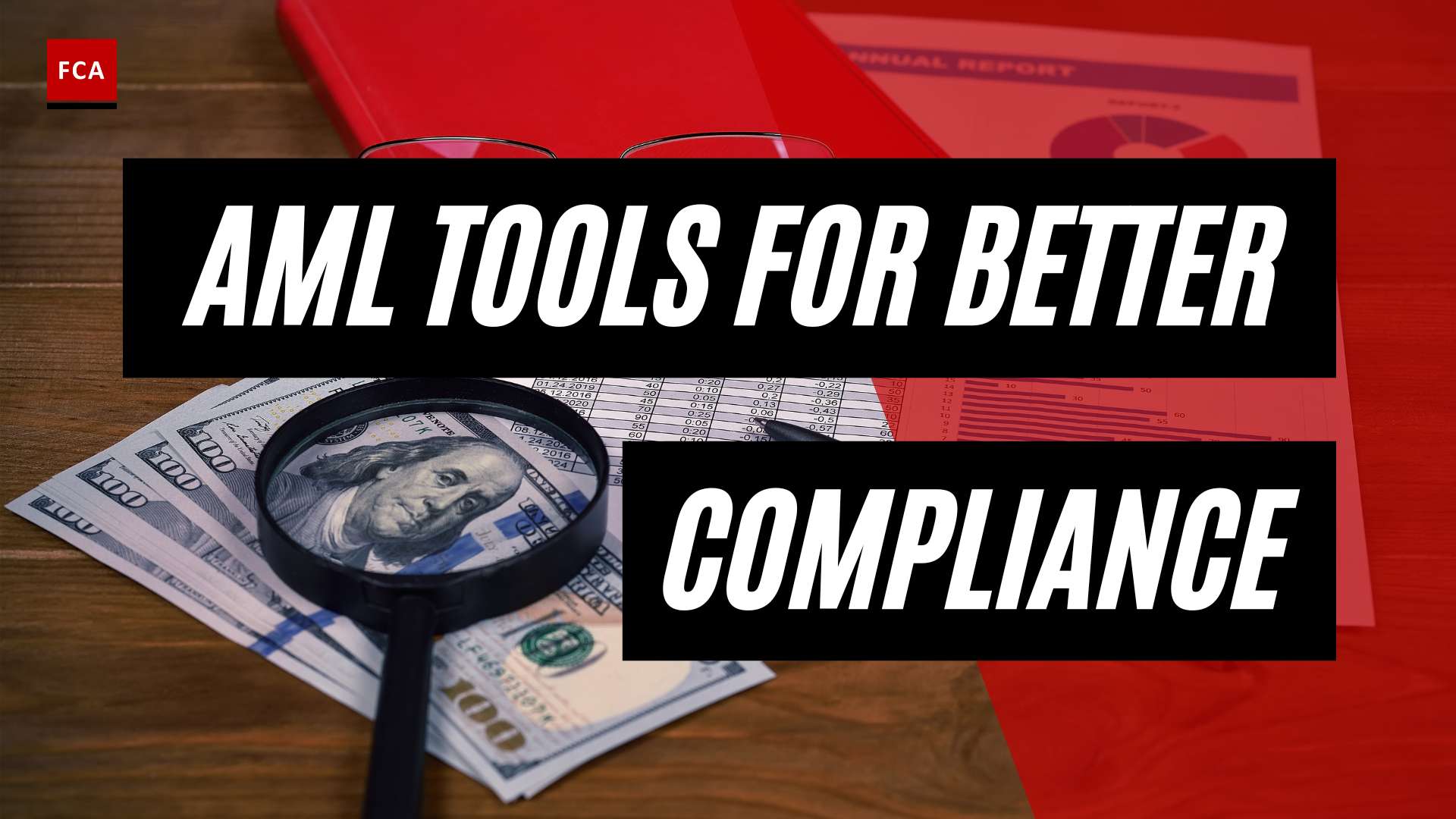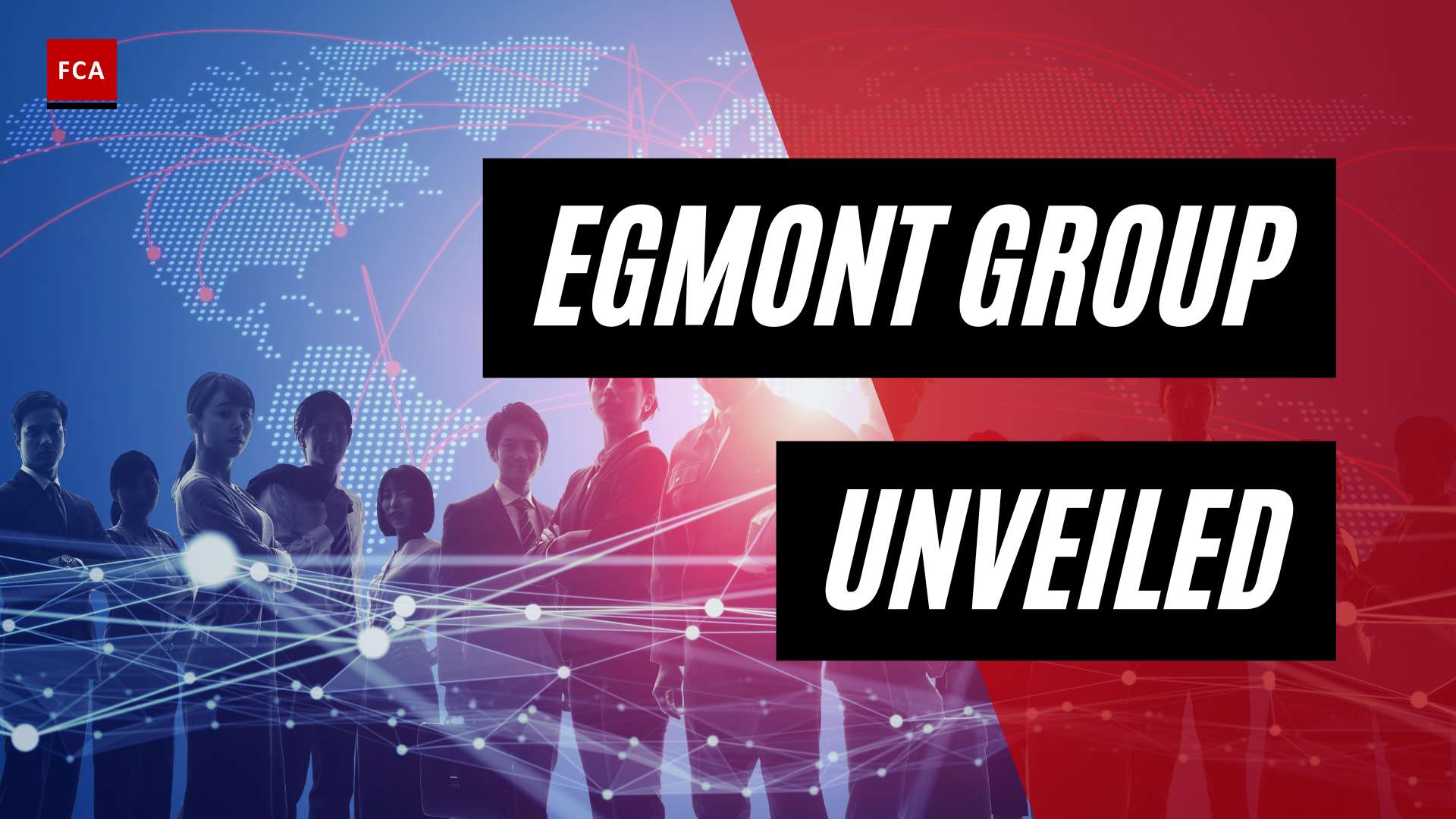Anti-Money Laundering Compliance in Emerging Markets
In the world of finance, the importance of anti-money laundering (AML) compliance cannot be overstated, particularly in emerging markets. As these markets experience rapid economic growth and globalization, ensuring proper AML measures is vital to maintain integrity, trust, and stability in the financial system.
The Importance of AML Compliance in Emerging Markets
AML compliance plays a crucial role in emerging markets for several reasons. First and foremost, it helps to protect these markets from being exploited by money launderers and other illicit actors. By implementing robust AML frameworks, emerging markets can safeguard their financial systems, prevent illegal activities, and deter the flow of illicit funds.
Furthermore, AML compliance is essential for emerging markets to gain credibility on the global stage. Compliance with international AML standards and regulations enhances their reputation as reliable and trustworthy financial hubs. This, in turn, attracts foreign investment, fosters economic growth, and facilitates international trade.
Challenges and Risks in Emerging Markets
While AML compliance is essential, emerging markets face unique challenges and risks in this area. These challenges can arise due to various factors such as regulatory environment, cultural and social dynamics, and technological infrastructure.
-
Regulatory Environment and Legislation: Emerging markets often grapple with developing and implementing effective AML regulations. The regulatory frameworks may be less mature or lack proper enforcement mechanisms. It is crucial for these markets to enhance their regulatory infrastructure, align with international standards, and establish competent regulatory bodies to ensure effective AML compliance.
-
Cultural and Social Factors: Cultural and social factors can influence AML compliance in emerging markets. Local customs, informal financial systems, and cultural attitudes towards financial transparency may pose challenges. Raising awareness and promoting a culture of compliance through education and training programs can help address these challenges.
-
Technological Infrastructure: Emerging markets may face limitations in terms of technological infrastructure and resources. Inadequate systems for customer due diligence, transaction monitoring, and data management can hinder effective AML compliance. Investing in technology upgrades and innovative solutions can help overcome these challenges and improve compliance capabilities.
To address these challenges and mitigate AML risks, emerging markets must prioritize the development and implementation of comprehensive AML compliance frameworks. This includes building strong regulatory environments, fostering cultural change, and investing in technological advancements. By doing so, these markets can strengthen their financial systems, build trust with international stakeholders, and contribute to the global fight against money laundering and illicit financial activities.
Understanding the AML Compliance Framework
To effectively combat money laundering in emerging markets, it is essential to have a robust Anti-Money Laundering (AML) compliance framework in place. This framework serves as a systematic approach to prevent, detect, and report suspicious activities that could potentially involve illicit funds. Understanding the key components of an AML compliance framework and adapting it to the unique challenges of emerging markets is crucial for building a strong compliance program.
Key Components of an AML Compliance Framework
An effective AML compliance framework consists of several key components that work together to mitigate the risk of money laundering and terrorist financing. These components include:
-
Policies, Procedures, and Internal Controls: Clear and comprehensive policies and procedures should be established to guide employees in identifying and reporting suspicious activities. Internal controls should be implemented to monitor and ensure adherence to these policies.
-
Risk Assessment: A thorough risk assessment is crucial to identify and understand the specific money laundering risks associated with operating in emerging markets. This assessment should consider factors such as the nature of the business, customer base, geographical location, and regulatory environment.
-
Customer Due Diligence (CDD): Implementing robust Know Your Customer (KYC) procedures is essential for verifying the identity of customers and assessing their risk profiles. This includes collecting relevant identification documents, conducting enhanced due diligence for high-risk customers, and ongoing monitoring of customer transactions.
-
Transaction Monitoring: AML compliance frameworks should include effective transaction monitoring systems to detect and report suspicious activities. These systems utilize advanced technologies to analyze customer transactions, identify patterns or anomalies, and generate alerts for further investigation.
-
Training and Awareness Programs: Regular training programs should be conducted to educate employees on AML regulations, emerging risks, and best practices. Continuous awareness-building efforts help to foster a culture of compliance throughout the organization.
Adapting the Framework for Emerging Markets
Emerging markets present unique challenges and require specific considerations when implementing an AML compliance framework. Factors such as regulatory environment, cultural and social factors, and technological infrastructure play a crucial role in shaping the framework.
-
Regulatory Environment and Legislation: Understanding the AML regulations specific to each emerging market is vital. Compliance programs need to align with local laws and regulatory expectations. A comprehensive understanding of the AML regulations in emerging markets allows organizations to tailor their compliance efforts accordingly.
-
Cultural and Social Factors: Cultural norms and practices can impact the effectiveness of AML compliance efforts. Organizations operating in emerging markets should consider cultural sensitivities, language barriers, and local customs when designing their compliance programs. This requires effective communication and training strategies to ensure that compliance measures are understood and followed.
-
Technological Infrastructure: The availability and reliability of technological infrastructure in emerging markets can pose challenges to implementing advanced AML monitoring systems. Organizations must assess the technological capabilities and limitations of the market and identify suitable solutions or workarounds. Embracing innovative AML compliance solutions for emerging markets and leveraging emerging technologies can help overcome these limitations.
By understanding the key components of an AML compliance framework and adapting it to the unique challenges of emerging markets, organizations can build effective compliance programs. This ensures that they meet the AML compliance requirements in emerging markets and stay ahead of emerging AML compliance trends in these dynamic market environments.
Factors Influencing AML Compliance in Emerging Markets
When it comes to Anti-Money Laundering (AML) compliance in emerging markets, several factors come into play. These factors can significantly impact the effectiveness and implementation of AML measures. In this section, we will explore three key factors that influence AML compliance in emerging markets: regulatory environment and legislation, cultural and social factors, and technological infrastructure.
Regulatory Environment and Legislation
The regulatory environment and legislation surrounding AML in emerging markets play a crucial role in shaping compliance efforts. Each country has its own set of AML regulations and requirements, which may differ from established global standards. It is important for organizations operating in these markets to stay up-to-date with the specific AML regulations and legal frameworks in place.
Adherence to AML regulations often involves conducting due diligence, implementing robust internal controls, monitoring transactions, and reporting suspicious activities. Organizations must be aware of the regulatory expectations and ensure that their AML compliance programs align with the local requirements. For more information on AML regulations in emerging markets, refer to our article on aml regulations in emerging markets.
Cultural and Social Factors
Cultural and social factors can significantly impact the effectiveness of AML compliance efforts in emerging markets. These factors include attitudes towards financial transparency, corruption levels, and societal norms regarding financial transactions.
In some cultures, certain financial practices may be considered acceptable or even expected, which can pose challenges to AML compliance. Additionally, the prevalence of corruption and informal economies in some emerging markets may create an environment conducive to money laundering activities.
Organizations operating in these markets must navigate these cultural and social nuances to foster a culture of compliance. This may involve implementing targeted training programs, raising awareness about AML risks, and collaborating with local stakeholders to promote a strong compliance culture. For more information on the cultural and social factors influencing AML compliance, refer to our article on aml compliance risks in emerging markets.
Technological Infrastructure
The technological infrastructure in emerging markets can have a significant impact on the implementation and effectiveness of AML compliance measures. Access to reliable and advanced technology is crucial for conducting robust customer due diligence, implementing transaction monitoring systems, and analyzing large volumes of data.
In some emerging markets, limited technological infrastructure may pose challenges to the adoption of sophisticated AML compliance solutions. This can hinder the ability of organizations to effectively detect and prevent money laundering activities.
However, advancements in technology have also opened up opportunities for innovative AML solutions in emerging markets. The increasing availability of data analytics tools, artificial intelligence, and regtech solutions can help organizations enhance their AML compliance efforts. To learn more about leveraging technology for AML compliance in emerging markets, refer to our article on aml compliance solutions for emerging markets.
By understanding and addressing these factors, organizations can better navigate the complexities of AML compliance in emerging markets. It is essential to adapt AML compliance programs to the specific regulatory, cultural, and technological landscape of each market to effectively combat money laundering activities.
Best Practices for AML Compliance in Emerging Markets
To effectively combat money laundering in emerging markets, implementing best practices for Anti-Money Laundering (AML) compliance is crucial. These practices help organizations mitigate risks, safeguard their reputation, and ensure compliance with regulatory requirements. Here are three key best practices for AML compliance in emerging markets.
Conducting Risk Assessments
A comprehensive risk assessment is the foundation of an effective AML compliance program. It helps organizations identify and understand the specific money laundering risks they face in emerging markets. By conducting a risk assessment, organizations can evaluate the potential threats and vulnerabilities they may encounter.
The risk assessment process involves analyzing factors such as the nature of the organization’s business, the countries and regions it operates in, the types of customers and transactions it deals with, and the regulatory environment of the emerging market. This assessment enables organizations to develop appropriate risk mitigation strategies and allocate resources accordingly.
| Risk Assessment Steps |
|---|
| 1. Identify and assess money laundering risks specific to the organization and the emerging market. |
| 2. Evaluate the likelihood and potential impact of these risks. |
| 3. Develop risk mitigation strategies and controls based on the identified risks. |
| 4. Regularly review and update the risk assessment to adapt to changing circumstances and new emerging market trends. |
Implementing Robust Know Your Customer (KYC) Procedures
Implementing robust Know Your Customer (KYC) procedures is vital for AML compliance in emerging markets. KYC procedures ensure that organizations have a clear understanding of their customers’ identities, activities, and risk profiles. These procedures help organizations detect and prevent money laundering by verifying the legitimacy of customer transactions.
The KYC process typically involves collecting and verifying customer information such as identification documents, proof of address, and beneficial ownership details. Organizations should establish risk-based due diligence procedures aligned with the level of risk associated with different customer types, transactions, and emerging markets.
By implementing effective KYC procedures, organizations can minimize the risk of engaging in transactions with individuals or entities involved in money laundering activities. Regularly updating and refreshing customer information is also crucial to ensure ongoing compliance and to adapt to changing circumstances.
Training and Awareness Programs
Training and awareness programs play a vital role in promoting a culture of compliance and ensuring that employees understand their responsibilities in preventing money laundering in emerging markets. These programs educate employees on AML regulations, emerging market-specific risks, and the organization’s internal policies and procedures.
Training programs should cover topics such as recognizing money laundering red flags, reporting suspicious activities, understanding emerging market-specific AML regulations, and utilizing internal control systems effectively. It is essential to provide regular refresher training to keep employees up to date with emerging market trends and changes in AML regulations.
By investing in training and awareness programs, organizations can empower their employees to identify and report suspicious activities, mitigate risks, and foster a culture of compliance throughout the organization.
Implementing these best practices for AML compliance in emerging markets is crucial for organizations to effectively combat money laundering risks. By conducting thorough risk assessments, implementing robust KYC procedures, and providing comprehensive training and awareness programs, organizations can strengthen their AML compliance efforts and contribute to the integrity of the financial system.
Leveraging Technology for AML Compliance in Emerging Markets
In the ever-evolving landscape of anti-money laundering (AML) compliance, emerging markets face unique challenges. However, advancements in technology have paved the way for innovative solutions to enhance AML compliance efforts. In this section, we will explore how technology can be leveraged to strengthen AML compliance in emerging markets.
Utilizing Data Analytics and Artificial Intelligence
Data analytics and artificial intelligence (AI) play a vital role in AML compliance by helping institutions identify potential money laundering activities more efficiently and effectively. By analyzing vast amounts of data, these technologies can detect patterns, anomalies, and suspicious transactions that might otherwise go unnoticed.
Through the use of machine learning algorithms, data analytics and AI systems can continuously adapt and improve their ability to identify suspicious activities, making them highly valuable tools for AML compliance in emerging markets. These technologies can help institutions stay ahead of evolving money laundering techniques and proactively mitigate risks.
Implementing Transaction Monitoring Systems
Transaction monitoring systems are essential components of an effective AML compliance program. These systems automatically analyze and monitor customer transactions, flagging those that exhibit unusual patterns or characteristics. In emerging markets, implementing robust transaction monitoring systems is crucial to detect and prevent money laundering activities.
Transaction monitoring systems can be customized to the specific risk profiles of emerging markets, taking into account factors such as transaction volume, types of products or services offered, and regional risk assessments. By leveraging technology to automate this process, institutions can enhance their ability to identify suspicious transactions and promptly report them as required by AML regulations.
Embracing Regtech Solutions
Regulatory technology, or Regtech, refers to technology-driven solutions designed to assist institutions in meeting their regulatory compliance obligations. Regtech solutions can streamline AML compliance processes, reduce manual effort, and enhance accuracy and efficiency.
In emerging markets, where resources and expertise may be limited, Regtech solutions can provide significant support. These solutions can include automated customer due diligence (CDD) processes, risk assessment tools, and compliance management systems. By embracing Regtech solutions, institutions can enhance their AML compliance capabilities while minimizing operational costs and risks.
By leveraging data analytics, AI, transaction monitoring systems, and Regtech solutions, institutions can strengthen their AML compliance efforts in emerging markets. However, it is important to note that technology should be used in conjunction with sound risk management practices and human expertise. The role of technology is to augment and enhance the effectiveness of AML compliance programs, empowering institutions to mitigate risks and combat money laundering in emerging markets.
Collaboration and Partnerships
In the complex landscape of anti-money laundering (AML) compliance in emerging markets, collaboration and partnerships play a crucial role in promoting effective implementation and enforcement of AML measures. By engaging with local stakeholders and fostering international cooperation, stakeholders can collectively work towards combating money laundering and terrorist financing activities. Two key aspects of collaboration and partnerships in AML compliance are engaging with local stakeholders and promoting international cooperation and information sharing.
Engaging with Local Stakeholders
Engagement with local stakeholders is essential to ensure the success of AML compliance efforts in emerging markets. Local stakeholders, including government agencies, financial institutions, law enforcement bodies, and industry associations, possess valuable insights and expertise that can contribute to the development and implementation of robust AML frameworks.
By actively involving local stakeholders in the AML compliance process, regulators and organizations can benefit from their knowledge of the local environment, cultural nuances, and regulatory landscape. This collaboration fosters a deeper understanding of the challenges and risks specific to the region, allowing for the tailoring of AML strategies and initiatives. It also facilitates the exchange of best practices and the identification of emerging trends and regulatory updates.
International Cooperation and Information Sharing
Given the global nature of money laundering and financial crime, international cooperation is vital in addressing AML challenges in emerging markets. Establishing effective mechanisms for information sharing and cooperation among countries helps combat cross-border illicit activities, as criminals often exploit jurisdictional differences and regulatory gaps.
Through international cooperation, countries can align their AML efforts, share intelligence and best practices, and enhance their collective ability to detect and disrupt money laundering networks. This collaboration also enables the identification of global trends, typologies, and emerging risks, enabling proactive measures to be implemented.
To support international cooperation, organizations such as the Financial Action Task Force (FATF) and regional bodies like the Asia-Pacific Group on Money Laundering (APG) facilitate dialogue, set standards, and promote collaboration among countries. The establishment of bilateral and multilateral agreements further strengthens cooperation in combating money laundering and terrorist financing.
By collaborating with local stakeholders and fostering international cooperation, AML compliance efforts in emerging markets can be significantly enhanced. This approach promotes the exchange of knowledge, facilitates the development of effective AML frameworks, and strengthens the collective ability to combat money laundering and financial crime. For more insights on AML compliance in emerging markets, refer to our articles on AML regulations in emerging markets, AML compliance risks in emerging markets, and AML compliance challenges in emerging markets.








